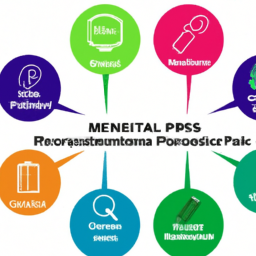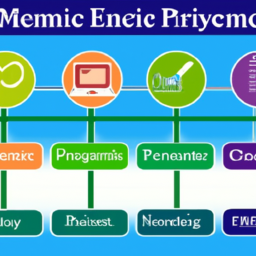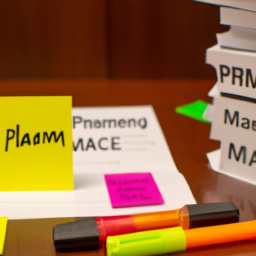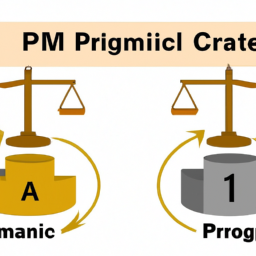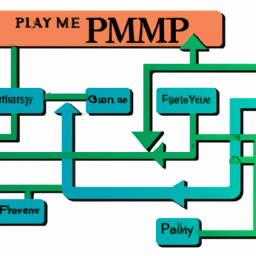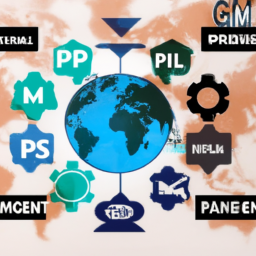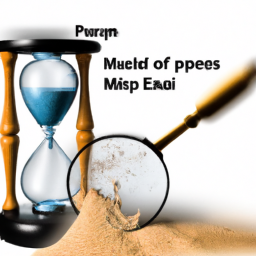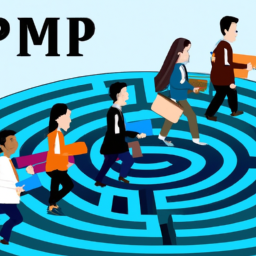You might be thinking, ‘I’ve already heard all the PMP exam tips out there.’ Well, think again.
This article is here to provide you with 5 game-changing PMP exam tips that you won’t find anywhere else.
These tips, when applied correctly, will give you the edge you need to pass the exam with flying colors.
So, buckle up and get ready to take your PMP exam preparation to the next level.
Let’s dive in!
Key Takeaways
- The PMBOK Guide is a comprehensive resource for project management processes.
- Practicing with PMP exam simulations familiarizes you with the format and difficulty level of the actual exam.
- Understanding project management processes, including the five process groups, is essential for success.
- Utilizing mind mapping techniques can enhance memorization and understanding of key concepts.
- Taking advantage of exam prep boot camps and workshops provides expert guidance and interactive learning opportunities.
Tip #1: Study the PMBOK Guide in Depth
You should study the PMBOK Guide in depth if you want to ace the PMP exam.
The PMBOK Guide, which stands for Project Management Body of Knowledge, is a comprehensive resource that covers all the project management processes necessary for success in the field.
It provides a standardized framework for project management, ensuring that you have a solid understanding of the key concepts and best practices.
By studying the PMBOK Guide thoroughly, you will be equipped with the knowledge and skills needed to navigate the exam with confidence.
It covers a wide range of topics, including integration, scope, time, cost, quality, procurement, and stakeholder management.
Make sure to allocate enough time to study the PMBOK Guide, as it is the foundation for your success in the PMP exam.
Tip #2: Practice With Realistic PMP Exam Simulations
Practicing with realistic PMP exam simulations is crucial for success. These simulations provide an opportunity to familiarize yourself with the format and difficulty level of the actual exam. They allow you to simulate the time constraints and pressure you will experience during the real test, helping you develop effective time management techniques. By practicing with realistic simulations, you can identify your strengths and weaknesses, enabling you to focus on areas that require improvement. Additionally, these simulations provide valuable feedback and allow you to track your progress over time. To help you understand the importance of realistic exam simulations, here is a table highlighting the benefits:
| Benefits of Realistic Exam Simulations |
|---|
| Familiarize with exam format |
| Develop time management techniques |
| Identify strengths and weaknesses |
| Receive feedback and track progress |
Incorporating these simulations into your study routine will significantly enhance your chances of success in the PMP exam.
Tip #3: Focus on Understanding Project Management Processes
Understanding project management processes is essential for success in the PMP exam. To effectively prepare for the exam, you must focus on developing a strong understanding of project management strategies and exam preparation techniques. By mastering these processes, you will be better equipped to answer the exam questions accurately and confidently.
One effective technique is to familiarize yourself with the five process groups: initiating, planning, executing, monitoring and controlling, and closing. Each group has specific activities and outputs that you need to understand thoroughly. Additionally, it is important to grasp the interrelationships between these process groups and how they flow together throughout a project’s life cycle.
Another key aspect to focus on is the knowledge areas, such as scope, time, cost, quality, and risk management. These areas cover essential project management concepts and practices that you will encounter in the exam. Make sure to study each knowledge area in detail and understand how they are integrated into the overall project management processes.
Tip #4: Utilize Mind Mapping Techniques for Memorization
Utilizing mind mapping techniques can greatly aid in the memorization of key project management processes and knowledge areas. Mind mapping is a visual and interactive way to organize information, making it easier to understand and remember. By creating a mind map, you can visually represent the relationships between different concepts and ideas, helping you to see the bigger picture and make connections. This technique is especially effective for visual learners who benefit from seeing information in a non-linear format. Mind mapping also allows for flexibility and creativity in organizing information, making it a versatile tool for memorization. By using colors, symbols, and keywords, you can enhance your memory retention and recall. Overall, incorporating mind mapping techniques into your study routine can greatly improve your ability to memorize and understand complex project management concepts.
| Mind Mapping Benefits | Effective Memorization Techniques |
|---|---|
| Visual representation of information | Organize information in a non-linear format |
| Helps see the bigger picture and make connections | Use colors, symbols, and keywords to enhance memory retention |
| Suitable for visual learners | Foster creativity and flexibility in organizing information |
Tip #5: Take Advantage of Exam Prep Boot Camps and Workshops
Attending exam prep boot camps and workshops can provide valuable resources and strategies for improving your project management knowledge and test-taking skills. Here are three reasons why taking advantage of these opportunities can greatly enhance your exam preparation:
-
Expert guidance: These boot camps and workshops are usually conducted by experienced instructors who have in-depth knowledge of the PMP exam and its content. They can provide you with valuable insights, exam prep strategies, and effective study techniques that you may not find elsewhere.
-
Interactive learning: Engaging in these group settings allows you to interact with other aspiring project managers. This collaborative environment fosters discussions, knowledge sharing, and problem-solving, helping you gain a deeper understanding of the concepts and learn from the experiences of others.
-
Practice and feedback: Boot camps and workshops often include practice exams and mock tests to assess your readiness for the actual PMP exam. The feedback and analysis provided by instructors can help you identify your strengths and weaknesses, allowing you to focus your study efforts on areas that need improvement.
Frequently Asked Questions
What Is the PMBOK Guide and Why Is It Important for the PMP Exam?
The PMBOK guide is an essential resource for the PMP exam. It provides a framework for project management processes, knowledge areas, and best practices.
Understanding the PMBOK guide is crucial because it sets the standard for project management professionals. It covers a wide range of topics, including project initiation, planning, execution, monitoring, and control.
How Can I Find Realistic PMP Exam Simulations to Practice?
Looking for realistic PMP exam practice? Well, you’re in luck! When it comes to finding pmp exam simulations, there are a few key strategies you can use.
First, check out reputable online platforms that offer practice exams specifically designed to mimic the real thing. Look for simulations that cover a wide range of topics and question types.
Additionally, consider joining study groups or forums where you can discuss and exchange practice exams with fellow PMP aspirants.
Happy practicing!
What Are Project Management Processes and Why Is It Necessary to Understand Them for the PMP Exam?
To succeed on the PMP exam, it’s crucial that you understand project management processes. These processes are the steps and activities involved in managing a project from start to finish.
Knowing them is important because it helps you navigate the exam questions and apply the right techniques. By understanding project management processes, you’ll be able to identify the best course of action for different scenarios, ensuring your success on the exam.
How Can Mind Mapping Techniques Help With Memorization for the PMP Exam?
Using mind mapping techniques can greatly benefit your memorization for the PMP exam. By visually organizing information and creating associations, your brain is able to retain and recall information more effectively.
Mind maps help you see the big picture and the connections between different concepts, making it easier to understand complex topics. This technique also promotes active learning and engagement, allowing you to actively participate in the learning process.
Incorporating mind mapping into your study routine can significantly enhance your memorization skills.
Where Can I Find Exam Prep Boot Camps and Workshops to Enhance My PMP Exam Preparation?
To enhance your PMP exam preparation, you can find various exam prep resources such as boot camps and workshops. These resources provide intensive study sessions and practical exercises to help you understand the exam material better.
Additionally, joining PMP study groups can be beneficial as you can collaborate with other aspiring project managers, exchange knowledge, and discuss challenging topics.
Together, these resources and study groups will help you prepare effectively for the PMP exam.
Conclusion
In conclusion, these five PMP exam tips are absolutely essential if you want to pass with flying colors.
By studying the PMBOK Guide in depth, practicing with realistic simulations, and focusing on understanding project management processes, you’ll be well-prepared for anything the exam throws at you.
Additionally, utilizing mind mapping techniques for memorization and taking advantage of exam prep boot camps and workshops will give you that extra edge.
So don’t wait any longer – start implementing these tips today and watch your PMP dreams become a reality!


